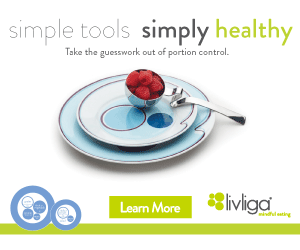
Why We Need Good "Brain Food"
Wednesday, October 17, 2012
I am constantly amazed at how all our health is tied to our weight and what we eat. Getting control of my weight, maintaining that control and doing it by eating healthy foods (avoiding the highly refined and processed kinds) is truly the secret to the success of a healthy lifestyle. Here is what I recently read from an American Heart Association newsletter about how our Brain Health and our Memory are tied to our healthy eating (or not!):
Forget the hype when it comes to fads for memory enhancing supplements or brain health.
Protecting memory and brain health is a matter of keeping your heart and blood vessels healthy, said Riska Platt, M.S., R.D., a New York-based nutrition consultant and volunteer with the American Heart Association.
“The brain is nourished by nutrients passed by the blood vessels,” Platt said. “If the blood vessels become clogged or impaired, that’s not good for the brain.”
Preventing a stroke, which can occur when a blood vessel carrying oxygen to the brain become blocked or bursts is crucial. When the brain can’t get the oxygen it needs, it starts to die. That can cause the brain to not function as well, or have mental cognitive decline, Platt said.
Healthy Weight, Healthy Brain
To help your heart and blood vessels healthy, Platt recommends eating a well-balanced diet, keeping your body within a healthy weight range and doing plenty of exercise to keep extra pounds off.
“Obesity has links to inflammation in the body and that’s not good for your brain,” Platt said.
Making sure your cholesterol levels and blood pressure are in check is also important. Diets should be high in fruits and vegetable, lean meats and low-fat dairy.
The D.A.S.H. (Dietary Approaches to Stop Hypertension) diet is a good model for a heart- and brain-friendly approach to eating, Platt said.
Eating foods rich in potassium – found in many fruits and vegetables – is also important for stroke prevention because it helps control blood pressure.
Platt cautions patients to stay away from trans fats. Trans fats – also called “partially hydrogenated oils” on food packaging, raise your bad cholesterol(LDL) levels and lower your good cholesterol (HDL) levels and increase your risk of developing heart disease and stroke.
There’s No Magic Food
While there’s no one magic food that can prevent problems with brain health, ongoing research points to promising signs about Vitamin D and omega fatty acids, Platt said.
Omega-3 fats, found in oily fish such as salmon or mackerel, are also believed to lead to better brain functioning, Platt said. And some research has shown that omega-3 fatty acids could decrease the risk of abnormal heartbeats (arrhythmias), slow the growth of plaque in the arteries (atherosclerosis)and decrease triglyceride levels.
Studies have also highlighted possible benefits from vitamin D as a way to ward off stroke and cognitive impairment.
“The No. 1 thing to do is have a well-balanced diet,” Platt said. “Don’t just focus on one food, because nutrients work together.”
loading..
Subscribe to:
Post Comments (Atom)












No comments